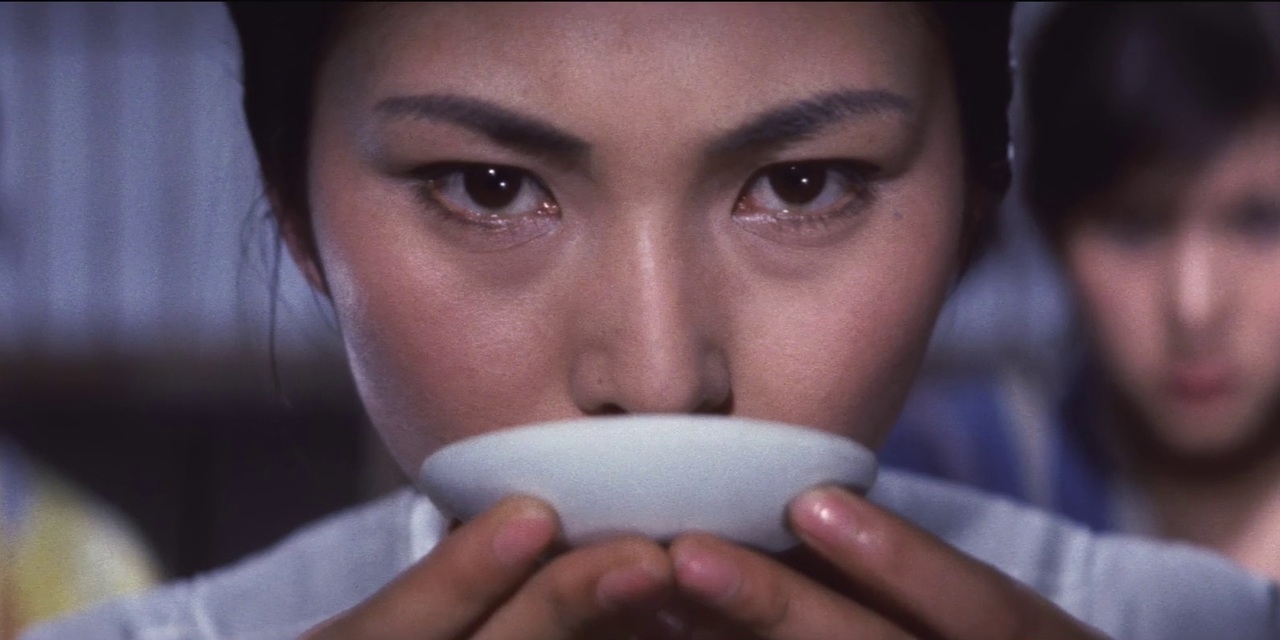
When writing the previous “10 great underseen Japanese movies” list, it quickly became clear that 10 films are just a fraction of the amount of brilliant underseen Japanese movies that are out there just waiting to be explored. The list talked about movies from 10 different directors in a variety of genres, but still it missed out on so much of what Japanese film culture has to offer, making a second list almost feel mandatory.
This second list hopefully has a lot more to offer, with a bunch of different directors, even including some of the biggest ones like Kurosawa, but also some directors that make a return with another underseen entry. While the previous list acknowledged the Yakuza genre, this time around we’ll dive a bit deeper into it and if you thought we discussed Japanese youth drama’s enough, you should think again, because a few more will be discussed. Without further ado let’s just jump right into 10 more Japanese movies that you’ve probably never seen.
1. An Actor’s Revenge (1963)
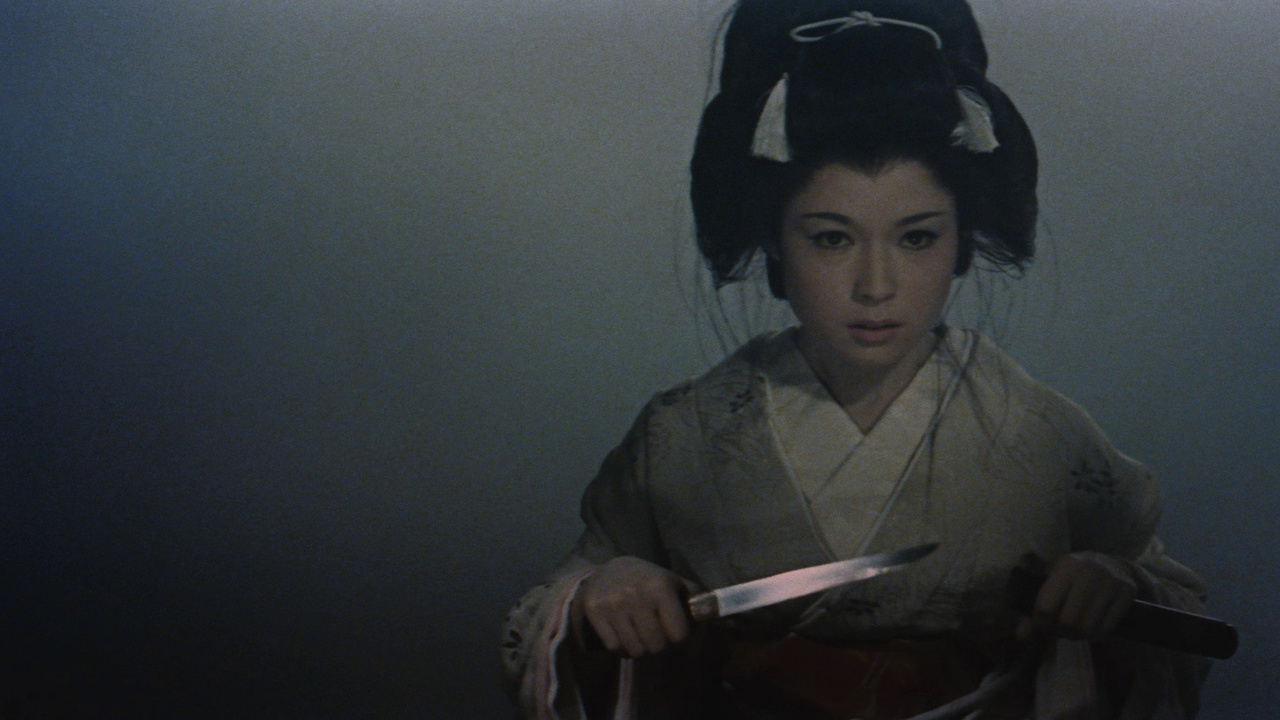
The first film on this new list of Japanese greats is one from a director that wasn’t discussed before, even though he well deserves it. Kon Ichikawa is a brilliant director most known for his films ‘The Burmese Harp’ and ‘Fires on the Plain’ as well as the documentary ‘Tokyo Olympiad.’ An Actor’s Revenge is not to be overlooked though. This tale of revenge is not what you’d expect from a revenge movie; it prefers somewhat strange and stylized drama over the more typical action-packed approach in Japanese revenge films.
Yukitaro’s parents committed suicide when he was still a kid and three men were responsible for this act. Now an adult, Yukitaro has become an onnagata, a male actor who plays female roles. He wears women’s clothes and uses the language and manners of a woman on stage as well as off stage. When the three men responsible for his father’s dath pay a visit to one of his shows, Yukitaro instantly recognizes them and decides to plot an intricate revenge.
An Actor’s Revenge is an odd, but beautiful drama, partially because of the visual style. With many scenes reflecting a live stage performance, Ichikawa manages to combine film with a traditional Japanese artform and he does it with an elegancy that can only be applauded.
2. Kids Return (1996)
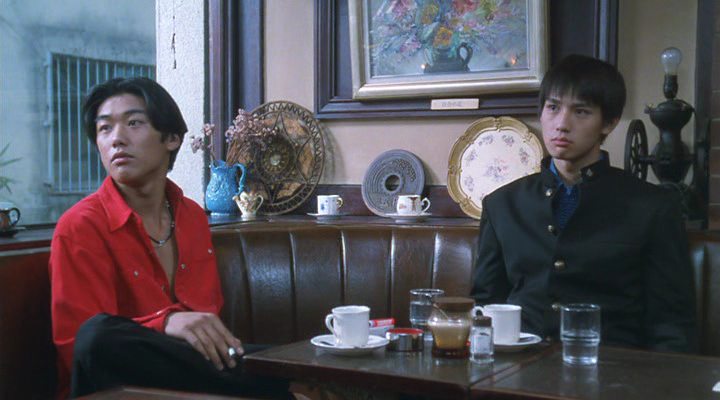
As promised, we’ll dive a little deeper into the Yakuza genre with this list, Kids Return only being the first of the gangster-filled entries.
In Kids Return, two old friends, Shinji and Masaru, recall their past and talk about where their split paths led them. The two used to be the school bullies, but both found their way in life, Shinji by becoming a professional boxer and Masaru by joining the Yakuza.
Takeshi Kitano is known for his films that often center around dramatized views of Yakuza gangsters. While on one hand his films can be pretty bleak, they always seem to have a sense of idiosyncrasy that gives them a sense of humor and makes for likeable characters, no matter their actions. His works including Hana-bi (Fireworks) and Sonatine gathered him international acclaim, but many of his films have stayed under the radar, Kids Return being one of them. This one has his recognizable thematic, but arguably expands on them. It’s a little more down to earth, a character study above a real Yakuza flick, and this suits Kitano very well.
3. Blind Woman’s Curse (1970)
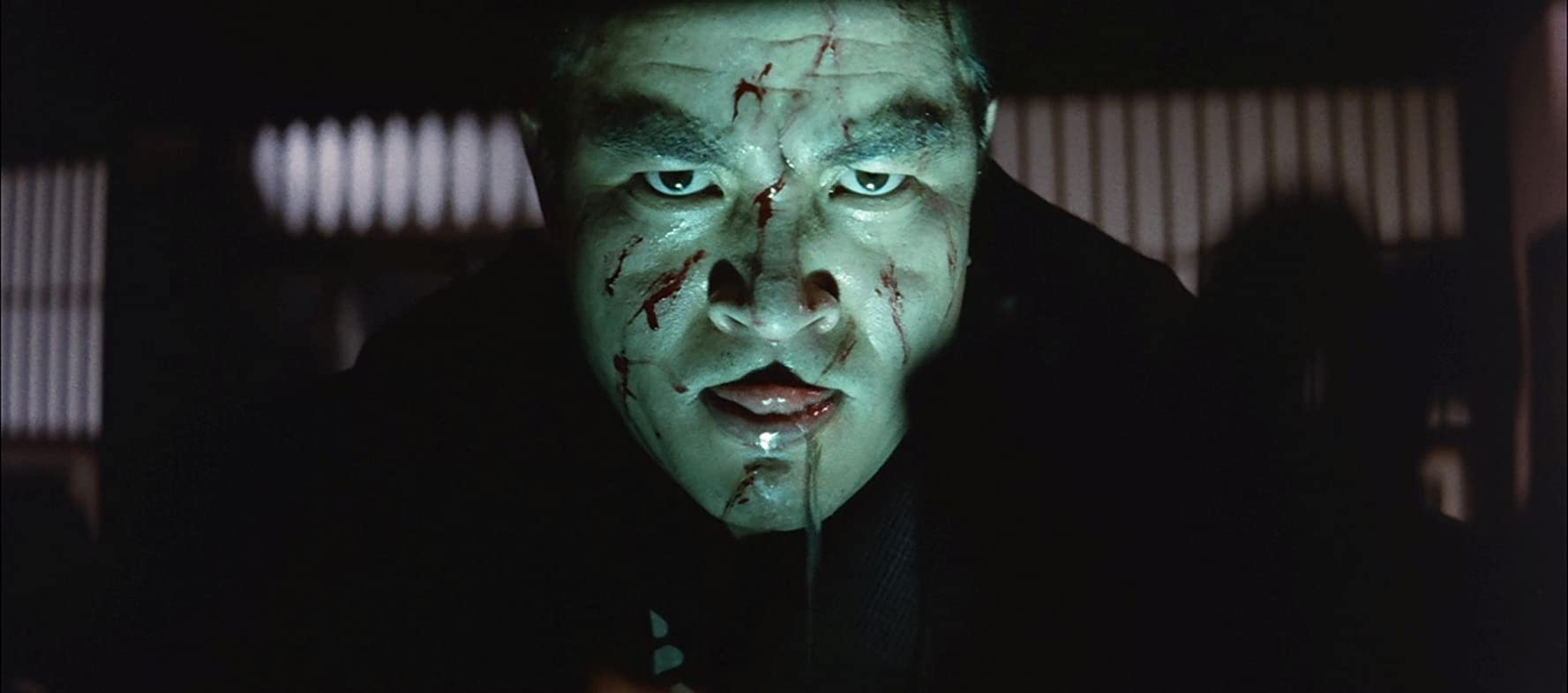
In Blind Woman’s Curse, the incredible Meiko Kaji plays Akemi, the leader of the Tachibana Yakuza clan. Her gang is known for having dragon tattoos on their backs. After Akemi blinds a swordswoman in a duel, she and her gang become the target of the vengeance of said swordswoman, who appears to have supernatural powers.
With this second Yakuza entry, director Teruo Ishii uses his distinct style to make a Yakuza film that’s a mixed bag of genres, filled with brilliant moments and impressively crafted sequences. The opening scene, a slow-motion filled sword fight between rival gangs is of impressive scale and immediately sets the tone of what’s to come. After this opening, the supernatural horror element starts to play out and the storyline following the Yakuza splits into several subplots. The branching plot makes the film go all over the place, but it’s hard to fault Ishii for it, when each of these subplots is as fun as the next one. The only fault in Blind Woman’s Curse is the short screen time for Meiko Kaji. Kaji, already mentioned in the previous list with Female Prisoner, is a magnetic presence in every film she appears. Her performance alone could be enough reason to give this one a watch.
4. Madadayo (1993)
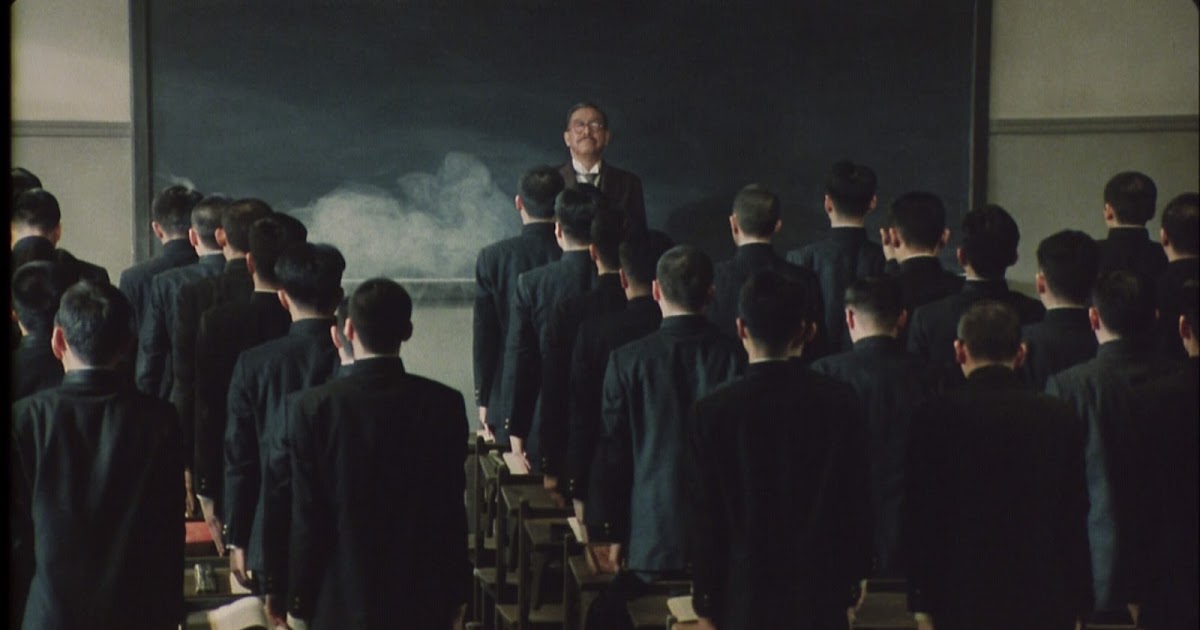
Akira Kurosawa needs no introduction, his name is probably known by everyone that visits Taste of Cinema, let alone this list. Instead we’ll just dive right into the last work he directed: Madadayo.
The film follows the life of professor Uehida Hyakken-sama (Tatsuo Matsumura), a university professor in 40’s Gotemba, Japan. Uehida is well respected by his students whom all look up to him greatly because of his knowledge as well as his humble, friendly personality. When Uehida tells his students that he is going to give up teaching to pursue writing, he is met with kind and encouraging words from his students who hate to see him go. In the years that follow, every one of Uehida’s birthdays is celebrated with a large group of students, who in ritual each year pose the question ‘not yet?’ just to hear their teacher answer ‘No, not yet!’ With this question, Kurosawa possibly commentates on his own career. The ritual of asking ‘not yet?’ is one of self-affirmation and with it, Kurosawa seems to come to terms with his own mortality. Madadayo being his last movie only adds to the message of this warm and heartfelt story.
5. Adrift in Tokyo (2007)
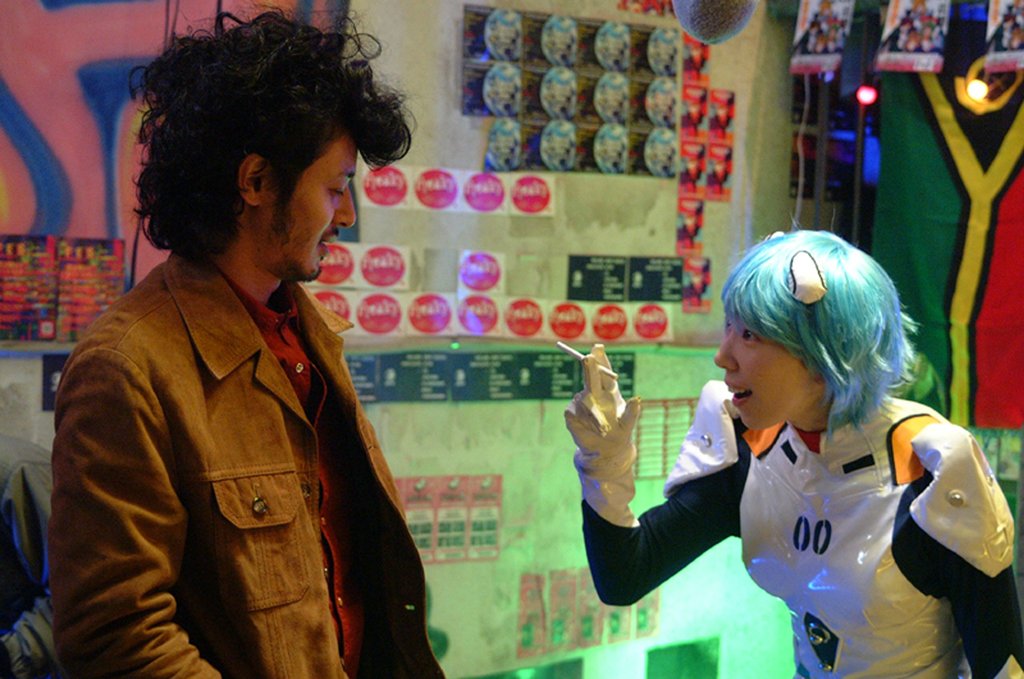
Fumiya (Joe Odagiri) is a lazy university student, after eight years still not graduated. He is in dept with loan sharks, which is where Fukuhara (Tomokazu Miura) comes in. Fukuhara initially pays Fumiya a visit to collect a loan, but on a second encounter he makes Fumiya a proposition: He will cancel the debt when Fuyima agrees to walk with him across Tokyo to the Kasumigaseki police station, where he intends to turn himself in. Fumiya accepts the proposition and what follows is a journey leading to unusual moments and a possible friendship.
Director Satoshi Miki adapted the screenplay from Yoshiniga Fujita’s novel of the same name. Miki manages to make his adaptation a charming ode to Tokyo, cherishing little real moments that are often dismissed in films. Adrift in Tokyo where not much needs to happen, since being in the presence of these characters for 101 minutes is a blast on its own.